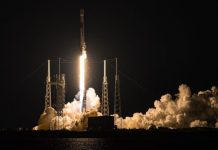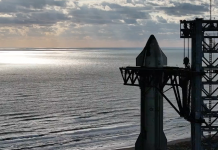Roscosmos confirms negotiations with SpaceX on the delivery of astronauts to the ISS using Crew Dragon
Since May last year, the United States resumed human-crewed flights to the ISS from its territory. On its own SpaceX Crew Dragon spaceships, NASA is trying not to force events and not take risks, continuing to buy seats from Russia on Soyuz spacecraft. But bilateral cooperation is expected.

Recently, the head of SpaceX, Elon Musk, said about the possibility of delivering Russian cosmonauts to the ISS: “Of course, it would be a matter of honor for us to deliver astronauts to Crew Dragon . “
Now the press secretary of “Roscosmos” Vladimir Ustimenko confirmed on the air of the radio station “Moscow speaks” that the state corporation is indeed negotiating with NASA about such flights: “We do not have a schedule of negotiations or a date for their completion. As soon as agreements are reached, we will inform you. There are several issues to be addressed.
The reason for this cooperation is not explained. This could be insurance considerations for manned programs, accelerated work schedules, banal cost cuts, or political motives. Or maybe everything is explained by a simple barter of seats in the Soyuz and Dragon ships.
Recall that on April 23 at 12:49 Moscow time, SpaceX launched the second regular crewed mission Crew-2 to the ISS. She set two records: the 80th successful return of the first stage of the Falcon 9 and the world’s first launch of humans into space in a used rocket and ship. About a day later, the Crew Dragon Endeavor spacecraft docked with the ISS, and after another 2 hours, the crew moved from the spacecraft to the orbital laboratory.
As a result, 11 people are simultaneously staying on the ISS, and two Crew Dragon ships are docked. However, soon 7 people will remain at the station: the long-term crew of Crew-1, sent in November 2020, will return to Earth on April 28.




